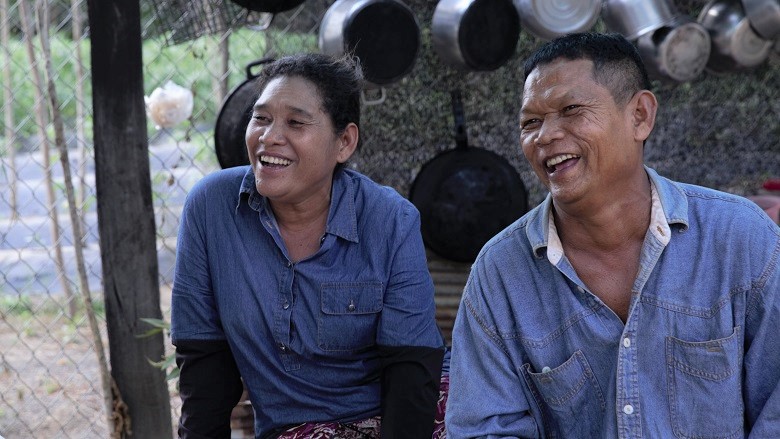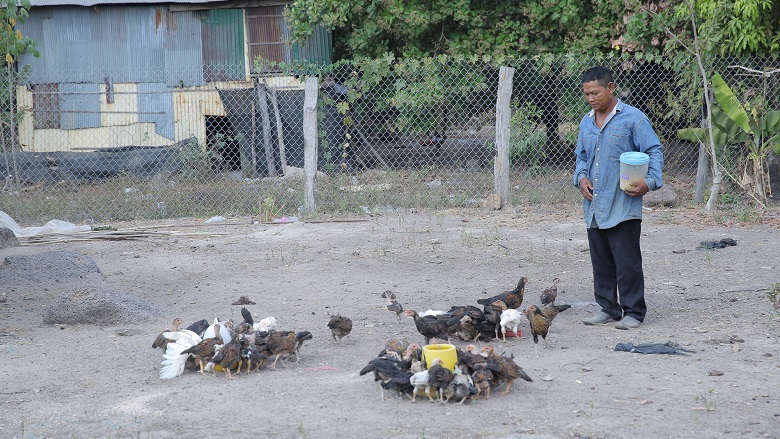Similarly, 30-year-old Yon Leng Sung, and her husband Pha Sophon, 29, returned to her parents’ house in Kratie province in mid-2020 after losing their jobs as construction workers in Thailand. Despite spending around ten years earning about 3 million riel ($750) per month, their expenses in Thailand were high and they were able to save little.
Leng Sung’s parents received a residential plot and three hectares of farmland from the LASED project. Since returning, the couple have helped the family expand their cassava crop. This year, the cassava is growing well and they expect to harvest about 10 tonnes. At the current price of 450 riel per kiloggram, that would earn the family about 4.5 million riel ($1,125). “We won’t go back to Thailand again after COVID-19 is finished,” said Yon Leng Sung. “My husband and I will stay here to look after the farm and take care of our parents.”
The LASED project, which is implemented by Cambodia’s Ministry of Land Management, Urban Planning and Construction, and Ministry of Interior and the Ministry of Agriculture, Forestry and Fisheries, has so far enabled over 5,000 rural families to become landowners.
, and it forms just one part of the World Bank strategy to assist recovery. In support of the Royal Government of Cambodia’s efforts, the Bank approved a $20 million COVID-19 Emergency Response project, allocated an additional $14 million under the Health Equity and Quality Improvement project, and worked with the Strengthening Pre-service Education System for Health Professionals project to build a resilient health service delivery system in Cambodia.
In addition, various ongoing World Bank-supported projects have adjusted their programs to help tackle the COVID-19 impact. The Higher Education Improvement project has invested $5 million in e-learning so that nearly 3 million pre-school, primary and secondary school pupils can learn from home while schools are closed. The Cambodia Agriculture Sector Diversification project has financed $10 million in activities to address food security for vulnerable populations, while the Water Supply and Sanitation Improvement project is enhancing water connections in hospitals treating COVID-19 patients and providing hand washing stations to households in low-income communities.
To monitor the household-level impacts of COVID-19 in Cambodia, the World Bank and the National Institute of Statistics designed and are conducting high-frequency household phone surveys. The third round of surveys, completed in October and November 2020, showed that after the initial shock caused by the pandemic, employment has remained relatively stable, with about 65 percent of respondents in employment. Almost all these held the same jobs as during the previous round of the survey. The October 2020 survey also showed that 51 percent of households reported a decline in household income relative to the previous round, compared to 63 percent in August, and 83 percent in May.
Click here to learn more about the impact of COVID-19 on households in Cambodia.



